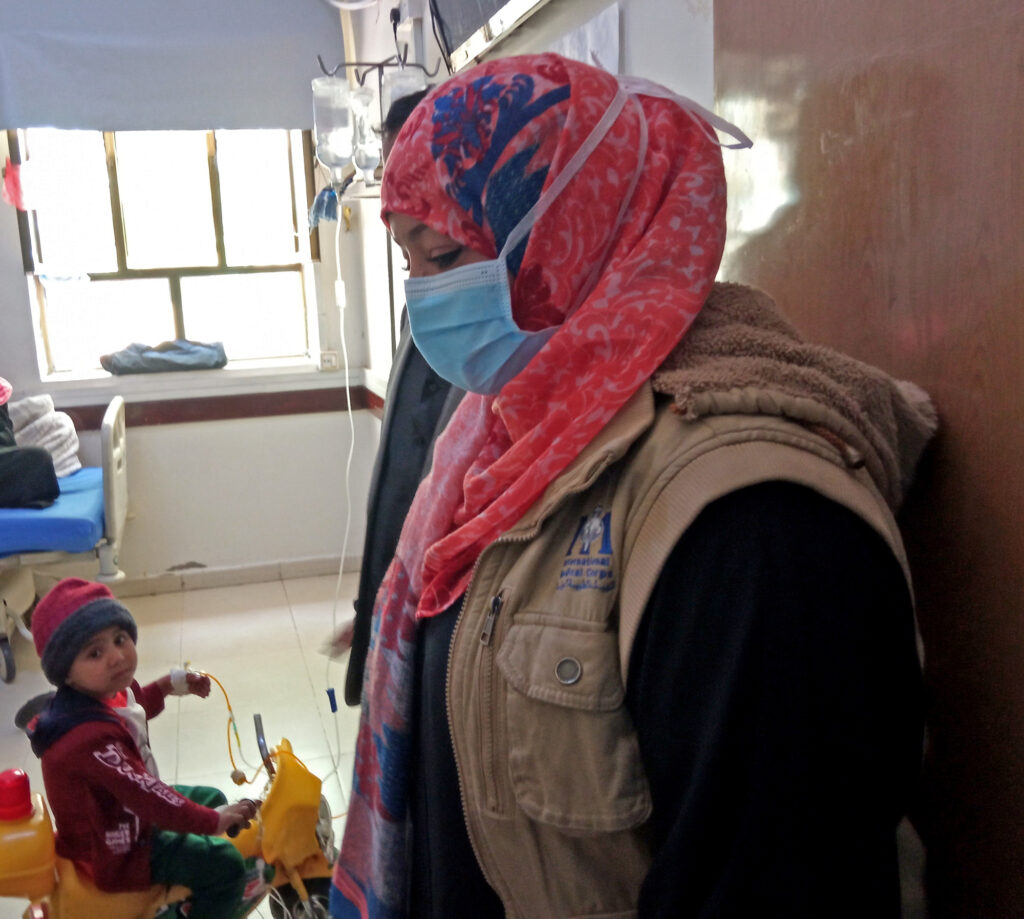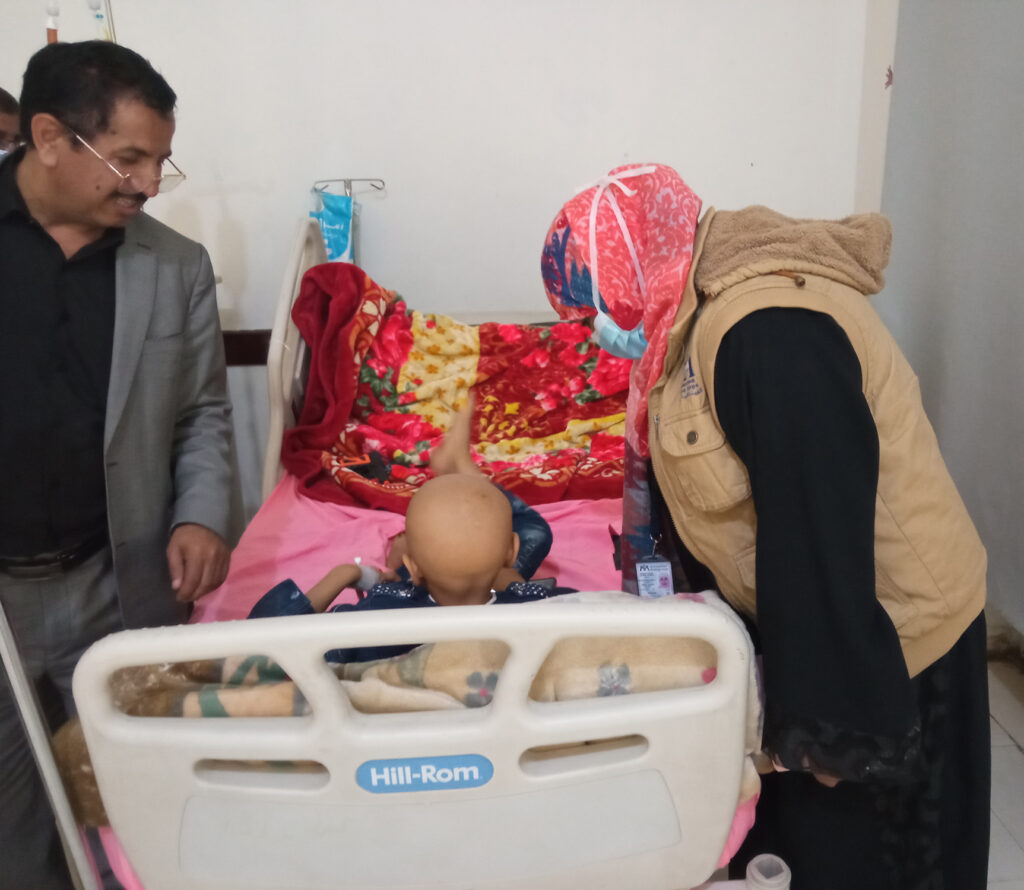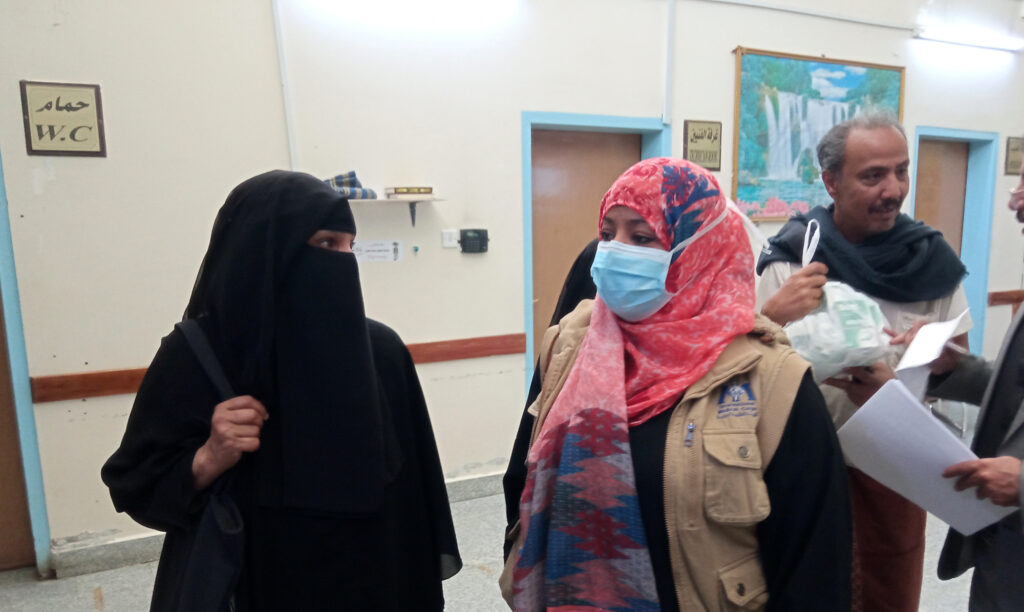Editor’s Note: International Medical Corps’ Yemen Blog presents a rare view of life on the ground in Yemen, chronicled by our first responders as they battle one of the world’s worst humanitarian disasters—one fueled by poverty, hunger, disease and a seemingly endless war, now in its eighth year.
The entry below is written by Dr. Nebras Khaled, our Health Program Manager in northern Yemen. She is based in Yemen’s capital, Sana’a, where she grew up, earned her medical degree and lived much of her life before joining International Medical Corps in 2014 as a mobile medical team leader. Her current responsibilities include helping to implement our healthcare, nutrition, and water, sanitation and hygiene (WASH) programs in three districts of Sana’a governorate that have been hit especially hard by the effects of war, crippling food shortages and high rates of disease.
As so much of the world focuses on more recent crises elsewhere, the humanitarian crisis in Yemen grinds on, passing its seventh anniversary last month. With no plan for peace and no sign of negotiations to create such a plan, Yemen’s tragedy feels endless. And as the crisis goes on, living conditions for civilians deteriorate further. The fighting, the death and the suffering grow day by day—as do the needs of those struggling to survive this national nightmare.
The conflict that the European Union has called the “world’s worst humanitarian crisis” and the United Nations describes as “entirely man-made”, has had devastating and far-reaching consequences on Yemen’s healthcare system. Many hospitals are now short of key medicines and other life-saving medical supplies. Ironically, among the most seriously affected appear to be those medical facilities that specialize in non-communicable diseases, a part of our healthcare system whose problems are not always linked directly to the war itself. One of the most important of these institutions is the National Oncology Center (NOC), Yemen’s largest cancer hospital located in the capital, Sana’a. It has been hit especially hard.

As a physician myself, working in hard-pressed communities dealing with high rates of malnutrition, cholera and even diphtheria, I have become accustomed to the kind of dire healthcare conditions and other hardships that this war has imposed on innocent civilians. But I was totally unprepared for what I saw when I visited the NOC with my healthcare team for the first time a several months ago. What I witnessed could only be described as a terrible human calamity.
I didn’t expect to find so many patients in desperate need of essential medication and that this lack of access would so completely overwhelm whatever hope remained in their eyes. When available, these medications are provided to the patient free of charge, but sometimes health system funding shortages make life-saving treatments unavailable for long periods. During such times, desperate patients—and their families—quickly learn that none of these medicines are available in the local market and even if they were available, it would be beyond their reach financially. I saw one man who had brought his wife in for treatment and after he got the medication free of charge he asked the hospital pharmacist how much it would have cost him if his only option to address his wife’s cancer was to buy it commercially. I wasn’t prepared for the man’s response when he learned the charge would be $580. He began to cry and when I asked him why, it was clear his tears were caused by relief –and shock at what he clearly believed was a miracle that had suddenly brought new hope for his wife and his family.
The visit to the NOC had a major impact on the health team I lead. Together, we have endured hardship, we have faced physical and emotional pain and exhaustion. I am the strength of my team, and they are my strength. But this experience was especially intense. We wanted to do something—something that would bring hope for the patients there and elsewhere, who are stricken with life-threatening illnesses that only expensive treatments can cure or restore tolerable quality of life.
It was a stressful time as we searched for solutions, but the worry ended when our country director’s efforts culminated in approval to purchase treatments for non-communicable diseases that will help to provide meaningful care, especially for those who cannot afford to pay for it.

In the process, we’ve discovered that, despite the bleak reality so many Yemenis face today, for some, hope can find a way. This year International Medical Corps is planning to support the purchase of costly but life-saving medications needed to treat patients seriously ill with cancer and other non-communicable diseases, including kidney failure, diabetes, and blood disorders.
The need is great. We need to step up our efforts to find enough support for our ongoing purchase of life-saving medications. Even with so many other, more recent crises elsewhere, we can’t forget to support Yemen’s struggling healthcare system so that patients who need expensive treatments to survive can get them. I am especially proud of the support that International Medical Corps will be helping these patients. For now, I wait patiently for the paperwork and procurement process to end and look forward to seeing the smiles of sick children, their worried parents–and all patients who will benefit from this initiative when they discover that there is hope, that medication is available to them and they can afford it because, for them, it is free of charge.
It is especially gratifying–remarkable really–to see efforts to provide these emergency humanitarian needs for a group of people who historically have rarely had such support. It’s heart-warming to know that we can relieve the pain and suffering of these patients. It makes me feel good. It makes me happy to envision the smiles painted on the faces of children, their parents—and every patient—who will be able to get the treatments they need to ease their pain.
View next blog:
Serving as a CHV Transforms a Young Yemeni Woman
View previous blog:
A Humanitarian Looks Back at Five Challenging Years Punctuated with Moments of Sheer Joy
